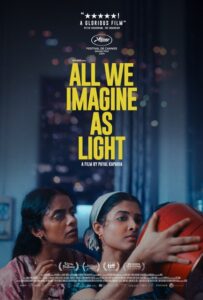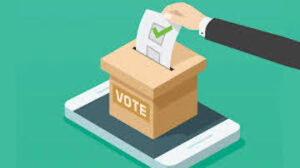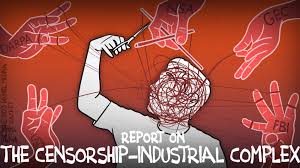46 More Books I Might Read in 2025
Since I began writing Early to Rise in 2000, I’ve challenged myself to read at least 50 books a year. For a fast reader like my parents, who could easily consume books of 350 pages in a single evening, reading a book a week is par for the course. But for someone who has diagnosed himself with ADD and dyslexia, it’s an ambitious goal.
I don’t think there has been a year that I haven’t hit my mark. But I succeed by taking shortcuts and (some would say) cheating. I can skim through non-fiction books at a rate of about 600 to 800 words a minute by using a speed-reading method I invented years ago.
Since I read fiction primarily to enjoy the literary skillfulness of the authors, I don’t have the option of skimming. I must read every word. Consequently, I prefer short novels (200 to 250 pages).
At the beginning of each year, I usually spend an hour or so looking up the books that have been nominated for and/or won some of the major literary awards in order to put a few dozen prize-winning titles in my head. This year, I also looked at “best of 2024” recommendations from the newspapers I read (the NYT, the WSJ, The Guardian, the Washington Post, and The Times of India (Don’t ask!), as well as a few blogs I follow to get a gut feeling for new books that might be up my alley.
One thing I noticed: A large percentage of the books that won multiple prizes were authored by women or men of color – another example of what I would call the current “affirmative action award culture.” You may say, “It’s about time.” But it’s not a new trend. It’s been going on for decades, though it may have peaked in 2024. At least I hope so.
That said, here are 46 books (24 fiction and 22 non-fiction) that are on my list to “maybe” read in 2025. What you will find is the title and the author, followed by a brief comment on or critique of the book from one of the sources I consulted. (I’m sure that some of them will turn out to be dreadful. I apologize in advance.)
Non-Fiction
1. King: A Life by Jonathan Eig
A revelatory portrait of Martin Luther King, Jr. that draws on new sources to enrich our understanding of each stage of the civil rights leader’s life, exploring his strengths and weaknesses, including the self-questioning and depression that accompanied his determination.
2. Postwar: A History of Europe Since 1945 by Tony Judt
Both intellectually ambitious and compelling to read, Postwar is thrilling in its scope and delightful in its small details.
3. An Unchosen People: Jewish Political Reckoning in Interwar Poland by Kenneth Moss
As a chronicle of how an embedded minority, buffeted by strengthening winds beyond its control, is forced to confront questions of belonging, identity, and illiberalism, the book has a disturbingly acute relevance for our current moment.
4. Say Nothing: A True Story of Murder and Memory in Northern Ireland by Patrick Radden Keefe
Easily the most compulsively readable entryway into Northern Ireland’s “Troubles” – an endlessly fascinating, and terrible, episode in 20th century conflict.
5. Blind Spots: When Medicine Gets It Wrong and What It Means for Our Health by Dr. Marty Makary
A high-profile specialist at Johns Hopkins University, Makary shows how the medical establishment promoted misinformation on a range of topics, ranging from childhood peanut allergies and hormone replacement therapy for menopausal women to a cavalier attitude toward antibiotics and the damage of excessive antibiotic use.
6. Building a Story Brand: Clarify Your Message So Customers Will Listen by Donald Miller
Whether you are trying to persuade a lawmaker to adopt your policy proposal or inspire donors to give to your local conservative club, compelling storytelling is essential to communicating conservative ideas effectively.
7. Hero of Two Worlds: The Marquis de Lafayette in the Age of Revolution by Mike Duncan
A nobleman, motivated by the ideals of freedom and democracy in the time of the American Revolution, in search of adventure. Although the book is nonfiction, Duncan’s prose is easy to read with interesting facts and good pacing to move Lafayette’s story along.
8. Marlborough: His Life and Times by Winston Churchill
George Washington once advised his friend James Madison that when the country faces storms, what it chiefly needs are “wisdom and good examples.” Marlborough provides both. More than that, it provides both twice-over, because in retelling the remarkable life of one of the greatest statesmen and generals in Western history, Churchill tells us a great deal about himself.
9. Nuclear Revolution: Powering the Next Generation by Jack Spencer
The good life means clean air and affordable, reliable resilient energy. Spencer explains how to get there through nuclear power.
10. Thinking in Bets: Making Smarter Decisions When You Don’t Have All the Facts by Annie Duke
Written by a cognitive psychology graduate student turned one of the most successful female poker players of all time, Thinking in Bets examines the process of human decision-making and suggests ways to optimize it to achieve better results in all facets of everyday life.
11. Detrans: True Stories of Escaping the Gender Ideology Cult by Mary Margaret Olohan
What happens when a young person “changes” her gender – and then realizes she made a mistake? Olohan tells stories the legacy media has largely ignored, describing exactly what happens in these experimental medical procedures and the effects they can have.
12. Two Years Before the Mast: A Sailor’s Life at Sea by Richard Henry Dana Jr.
In 1834, Richard Henry Dana Jr. dropped out of Harvard to sail on a small trading brig bound for California. Two Years Before the Mast recounts his time at sea, including themes of courage in the face of danger, the consequences of poor leadership, and the thrill of diving headfirst into a new way of life.
13. The Woketopus: The Dark Money Cabal Manipulating the Federal Government by Tyler O’Neil
A very accessible read despite the fact that it deals with an enormous number of facts.
14. Uncanny Valley: A Memoir by Anna Wiener
An aspiring writer making her way up the publishing hierarchy of the New York book scene, Anna Wiener suddenly decides to travel west and settle in the Bay Area, where she will enter the Silicon Vally culture and report back to us.
15. A History of Money and Banking in the United States by Murray Rothbard
An interesting account of how government and the large financial institutions have been manipulating the economy by manipulating money.
16. Soldiers and Kings: Survival and Hope in the World of Human Smuggling by Jason De León
An intense, intimate and first-of-its-kind look at the world of human smuggling in Latin America by a MacArthur “genius” grant winner and anthropologist with unprecedented access.
17. Circle of Hope: A Reckoning with Love, Power, and Justice in an American Church by Eliza Griswold
Part of a little-known yet influential movement at the edge of American evangelicalism, Philadelphia’s Circle of Hope grew for 40 years, planted four congregations, and then found itself in crisis. The story that follows is an American allegory full of questions with relevance for many of us, not just the faithful.
18. Unshrinking: How to Face Fatphobia by Kate Manne
Manne examines how anti-fatness operates – how it leads us to make devastating assumptions about a person’s attractiveness, fortitude, and intellect, and how it intersects with other systems of oppression.
19. Knife: Meditations After an Attempted Murder by Salman Rushdie
A deeply moving reminder of literature’s capacity to make sense of the unthinkable, an intimate and life-affirming meditation on life, loss, love, art – and finding the strength to stand up again.
20. Whiskey Tender: A Memoir by Deborah Jackson Taffa
Whiskey Tender traces how a mixed-tribe native girl – born on the California Yuma reservation and raised in Navajo territory in New Mexico – comes to her own interpretation of identity.
21. The Return: Fathers, Sons, and the Land in Between by Hisham Matar
Transforming his personal quest for answers into a brilliantly told universal tale of hope and resilience, Matar has given us an unforgettable autobiography with a powerful human question at its core: How does one go on living in the face of unthinkable loss?
22. Serendipity: The Unexpected in Science by Telmo Pievani
Pievani, a biology professor at the University of Padua in Italy, provides a catalog of serendipitous discoveries. For example, in 1941 the Swiss engineer George de Mestral was vacationing in the Alps and noticed that burdock seeds stuck annoyingly to his clothes and to his dog’s fur. Examining the culprits under a microscope, he saw many tiny hooks, whereupon he got the idea for… Velcro!
Fiction
1. The Book of Love by Kelly Link
The prose is diamond-sharp. It’s hard to imagine Link ever writing a clunky sentence or a bad description. Her characters are all brilliantly fast-talking and fast-thinking, their conversations full of wordplay and in-jokes. As people, they are multi-faceted – charming and understandable and tragic, as well as a bit obnoxious.
2. A Dove of the East: And Other Stories by Mark Helprin
The 20 stories here, many of which first appeared in The New Yorker and have since been anthologized throughout the world, are strikingly beautiful essays on enduring and universal questions. Pick this up, crease the binding, turn the page. You’ve never known anything like it. It has the benefit of being true.
3. Creation Lake by Rachel Kushner
You know from this book’s opening paragraphs that you are in the hands of a major writer, one who processes experience on a deep level. Kushner has a gift for almost effortless intellectual penetration.
4. Beautyland by Marie-Helene Bertino
Through friendships, hardships, adolescence, adulthood, celebrations of life, death, and the publication of an alien’s musings on humanity, Beautyland is not only a story of remembering the difficulties and beauties of being different, but one of discovering life as a person every day.
5. The Scarlet Pimpernel by Baroness Orczy
If you are looking to reengage with classic fiction but want something not too long or daunting, The Scarlet Pimpernel is a delightfully fun adventure. Set during the French Revolution, it introduces readers to a mysterious hero in disguise who rescues families from the daily executions by guillotine. There is mystery, intrigue, daring escapes, and just a little romance.
6. Night Watch by Jayne Anne Phillips
A beautifully rendered novel set in West Virginia’s Trans-Allegheny Lunatic Asylum in the aftermath of the Civil War where a severely wounded Union veteran, a 12-year-old girl, and her mother, long abused by a Confederate soldier, struggle to heal.
7. I, Robot by Isaac Asimov
Asimov’s short stories about the challenges of programming robots are extremely interesting in light of today’s AI policy debates. While this collection was written in the 1940s and 1950s, it offers surprisingly timely food for thought.
8. Long Way from Home by Frederick Busch
Responding to a magazine ad that may have been placed by her biological mother, Sarah Barrett abandons her Bucks County family and runs slowly to disaster in this sedate, ruminative thriller.
9. Red Cavalry by Isaac Babel
A group of related short stories about Russia’s (the Red Army’s) war against Poland. It is considered one of the great masterpieces of Russian literature.
10. Dirty Snow by Georges Simenon
A strongly written, darkly viewed novel about a young man who decides to live a life of crime. Simenon is not well known, but he may be the granddaddy of this sort of noire fiction.
11. Stone Yard Devotional by Charlotte Wood
Charlotte Wood has been described as one of Australia’s most original and provocative writers. This novel, set in a convent in rural Australia, follows a woman who is feeling despair over climate change.
12. The Doomed City by Arkady and Boris Strugatsky
An absolutely unique, unaccountably under-rated gem: Soviet-era science fiction written “for the drawer” (in the assumption that nothing so daring could be published in the USSR) by a wildly inventive pair of brothers who claim they wrote every single sentence collaboratively.
13. Zero K by Don DeLillo
DeLillo is best known for his sprawling Cold War epic Underworld (1997), but this shorter novel feels more eerily relevant today. An emotionally stunted billionaire and his wife have locked themselves away in a state-of-the-art facility beneath Kyrgyzstan. Their goal is to be cryogenically frozen until technology has developed enough to enable them to forestall death.
14. Ghostroots: Stories by Pemi Aguda
A debut collection of stories set in a hauntingly reimagined Lagos where characters vie for freedom from ancestral ties.
15. My Friends by Hisham Matar
A devastating meditation on friendship and family and the ways in which time tests – and frays – those bonds, My Friends is an achingly beautiful work of literature by an author working at the peak of his powers.
16. Martyr! by Kaveh Akbar
Cyrus Shams, an Iranian American aspiring poet and recovering drug addict, wallows in a post-college malaise in a fictional Midwestern town. He’s working dead-end jobs and halfheartedly attending A.A. while grieving his parents’ deaths and, increasingly, fantasizing about his own. Cyrus is lost and sad, but this captivating first novel, by an author who is himself a poet, is anything but.
17. You Dreamed of Empires by Alvaro Enrigue
Hernán Cortés and his men have arrived at Moctezuma’s palace for a diplomatic – if tense and comically imbalanced – meeting of cultures and empires. In this telling, it’s Moctezuma’s people who have the upper hand, though the emperor himself is inconveniently prone to hallucinogenic reveries and domestic threats. The carnage here is devilishly brazen, the humor ample and bone-dry.
18. Havoc by Christopher Bollen
This abidingly wicked novel of suspense and one-upmanship is narrated by an 81-year-old American widow permanently installed in a hotel on the Nile catering to moneyed vacationers. The widow is driven to “sow chaos” by what she calls her “compulsion.” “I liberate people who don’t know they’re stuck,” she claims. But her routine is disrupted when an eight-year-old American boy arrives at the hotel and becomes wise to her machinations.
19. The Storm We Made by Vanessa Chang
Ambitious” would be a trite term for Vanessa Chan’s outstanding debut, a historical novel that thrums with the commingling tensions of its backdrop: the lead-up to the WWII Japanese invasion of what is now Malaysia. Chan writes her characters with a precision that neither flinches from the brutality of war nor ignores the humanity within.
20. Wandering Stars by Tommy Orange
Stories about the ancestors of characters from Orange’s celebrated first novel There There. Extending his constellation of narratives into the past and future, he traces the legacies of the Sand Creek Massacre of 1864 and the Carlisle Indian Industrial School through three generations of a family in a story that is by turns shattering and wondrous.
21. All the World Beside by Garrard Conley
As Conley himself has described it, All the World Beside is a pioneering “queer Scarlet Letter,” revisiting the Puritan New England we remember from Nathaniel Hawthorne’s classic with a new cast of conflicted lovers.
22. Trust by Hernan Diaz
At once an immersive story and a brilliant literary puzzle, Trust engages the reader in a quest for the truth while confronting the deceptions that often live at the heart of personal relationships, the reality-warping force of capital, and the ease with which power can manipulate facts.
23. The Land in Winter by Andrew Miller
A study of two young marriages during England’s 1962-63 Big Freeze, The Land in Winter is a page-turning examination of the minutiae of life.
24. Lies and Weddings by Kevin Kwan
In a globetrotting tale that takes us from the black sand beaches of Hawaii to the skies of Marrakech, from the glitzy bachelor pads of Los Angeles to the inner sanctums of England’s oldest family estates, Kevin Kwan unfurls a juicy, hilarious, sophisticated, and thrillingly plotted story of love, money, murder, sex, and the lies we tell about them all.







